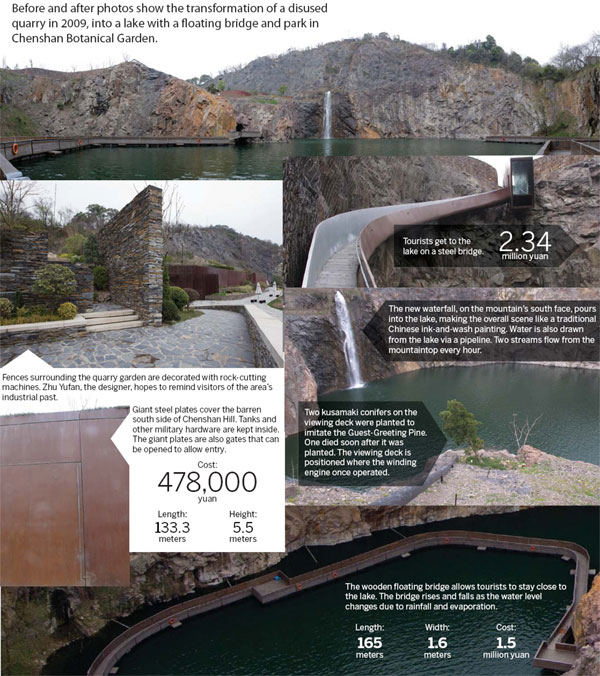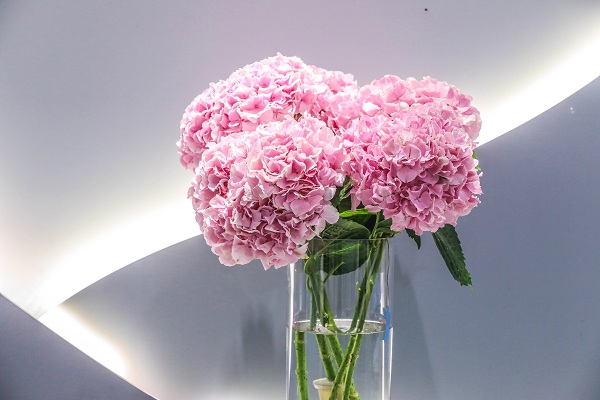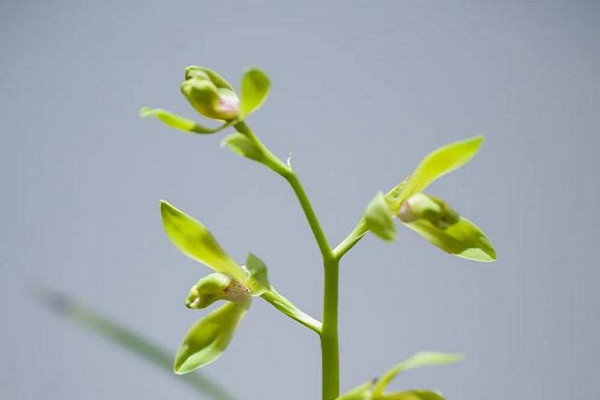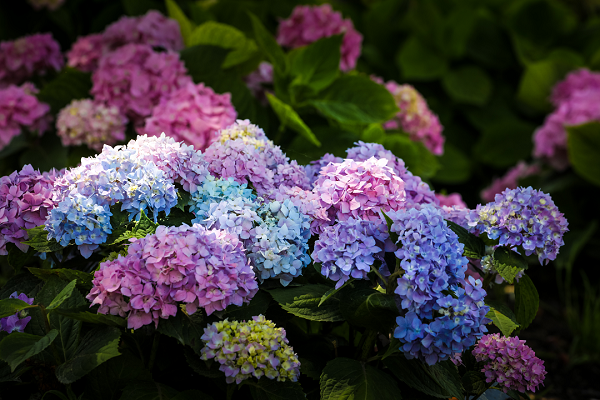It was the first time Zhu, who specializes in urban garden design, landscaped a quarry.
"I didn't like the idea of creating a quarry hotel on the site because that would mean a higher density of visitors," Zhu says.
"Reconstructing a quarry was a new and interesting idea to me. It was originally suggested that we should fill in the quarry, which I thought was hilarious. I later learned that this is a common way of dealing with abandoned quarries, but it is too crude and not necessarily safe.
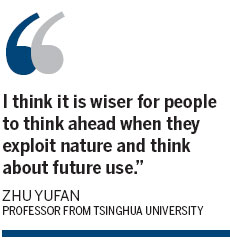
"I think it is wiser for people to think ahead when they exploit nature and think about future use."
He insisted on keeping the quarry lake, making it the centerpiece of the botanical garden.
In addition to creating a waterfall, with water pumped from the lake, Zhu and his design team conceived the idea of constructing a bridge that would allow visitors to walk from the top of the quarry down to the lakeside 30 meters below.
Safety issues were paramount, Zhu says. In the original plan the idea was to build a bridge alongside the hill, but since the rocks would require time to weather and stabilize, a floating bridge across the quarry lake was constructed instead, which also allows visitors to stroll across the water.
For the construction of the double-curved bridge that transports visitors from the viewing deck to the lake, the design team worked closely with Beijing's Zhong'ao Environmental Sculpture, which specializes in iron and steel.
It took five months to build the double-curved bridge, which has one side made of rusted iron and the other of burnished steel, says Zhu Yunlei, project manager of the sculpture company.
"It was really difficult for us to put the two sides of the bridge together at the quarry site," Zhu says.
Firstly, the two sides of the bridge were produced in sections, in Beijing, and then transported to the site. "Assembly was difficult and dangerous because the heavy machinery and materials caused rocks to fall."
Since Chenshan Botanical Garden opened in April 2010, it has proven to be a popular destination for sightseers, particularly photographers. In 2012 there were 700,000 visitors.
As for the 500 households of Chenshan village, they were relocated in 2006 to the residential area of Jiangqiu Xinyuan, about 1.5 km from the quarry.
For villagers like Zhang the park is now an inspiring memento of the area's industrial past.
